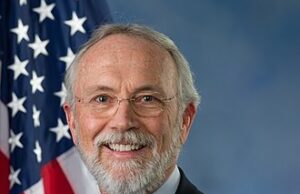PUBLIC COMMENT PERIOD IS OPEN FOR NEW BOND ACT-FUNDED GRANT PROGRAM TO MITIGATE FLOODING IN CERTAIN AT-RISK COMMUNITIES
New Resilient Watersheds Grant Program Will Bring State-of-the-Art Resiliency Plans into Action
Builds on the Success of the Resilient NY Program that Delivers Innovative Solutions for Flood Abatement
WASHINGTON, D.C. – RealEstateRama – The New York State Environmental Facilities Corporation today announced draft eligibility guidelines to launch a new Resilient Watersheds Grant program with funding from the Clean Water, Clean Air and Green Jobs Environmental Bond Act of 2022. Grants will support projects recommended in state-funded studies on how to best reduce flooding and ice jam hazards that threaten public health and safety in at-risk communities. The new grant program builds on the success of the existing Resilient NY program, bringing state-of-the-art planning into action and advancing the state’s goal of strengthening water infrastructure and protecting New Yorkers from the impacts of extreme weather.
“This new grant program is a win-win for New York State’s resiliency goals,” EFC President and CEO Maureen A. Coleman said. “The state’s forward approach to safeguarding our most vulnerable communities starts with programs that provide tangible solutions and fiscally sound and well-planned projects. Using Environmental Bond Act funding, we’re taking the next step forward by providing the financial resources that communities need to undertake these projects and reduce threats to critical infrastructure, water quality, and public health.”
The public is encouraged to comment on the draft eligibility guidelines, which are available in this week’s Environmental Notice Bulletin. EFC will use public input on these draft eligibility guidelines to inform development of the program.
Under the proposed eligibility guidelines, projects identified by existing and future Resilient NY Program studies are eligible to apply for the grant. Projects identified through other watershed studies may be eligible but must be evaluated by a licensed professional engineer using certain criteria to determine their effectiveness at reducing flooding and flood risk.
Eligible project components include, but are not limited to:
- Floodplain restoration, creation, and/or reconnection to stream
- Wetland creation and/or restoration
- Berm removal
- Dam removal
- Stream culvert replacement and right-sizing
- Culvert, bridges, and appurtenant structures (e.g., legacy abutments, approaches and/or piers, etc.) removal
- Streambank, stream channel, or shoreline restoration and/or stabilization and establishment of riparian buffers
- Stream daylighting
- Acquisition of land (i.e., fee title and/or conservation easement), including structures from willing sellers and their removal, which are necessary to complete eligible flood mitigation projects
The eligibility guidelines were developed by EFC in coordination with the State Department of Environmental Conservation, which administers both the Resilient New York Program and the Environmental Bond Act. The voter-approved $4.2 billion Environmental Bond Act is advancing historic levels of funding to update aging water infrastructure and protect water quality, strengthen communities’ ability to withstand severe storms and flooding, reduce air pollution and lower climate-altering emissions, restore habitats, and preserve outdoor spaces and local farms.
Public comments on the guidelines are due in writing by 5 p.m. on Friday, December 13 to Thomas R. Snow Jr., New York City Watershed and Flood Resiliency Programs Coordinator, 625 Broadway, Albany NY, 12233, or " rel="noreferrer">.
Disadvantaged Communities
The Environmental Bond Act requires that disadvantaged communities shall receive no less than 35 percent, with the goal of 40 percent, of the benefit of the total $4.2 billion Environmental Bond Act funds.
Disadvantaged communities are those identified by the Climate Justice Working Group, pursuant to the Climate Leadership and Community Protection Act. EFC has established a 40 percent goal for this grant program consistent with this requirement to benefit disadvantaged communities.
New York’s Commitment to Water Quality
New York State continues to increase its nation-leading investments in water infrastructure, including more than $2.2 billion in financial assistance from EFC for local water infrastructure projects in State Fiscal Year 2024 alone. With $500 million allocated for clean water infrastructure in the FY25 Enacted Budget announced by Governor Hochul, New York will have invested a total of $5.5 billion in water infrastructure between 2017 and this year. Governor Hochul’s State of the State initiatives are ensuring ongoing coordination with local governments and helping communities to leverage these investments. The Governor increased WIIA grants for wastewater projects from 25 to 50 percent of net eligible project costs for smaller, disadvantaged communities. The Governor also expanded EFC’s Community Assistance Teams to help small, rural and disadvantaged communities leverage this funding and address their clean water infrastructure needs. Any community needing assistance with water infrastructure projects is encouraged to contact EFC.
###
Contact: Heather Cameron | | (518) 402-6924













